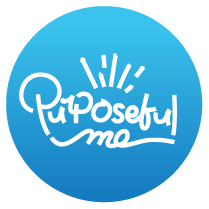
The Power of Questioning
A couple of weeks ago, I wrote about unleashing the power of critical thinking for good and today’s post is a continuation of that thought process about what it takes to think, know and do differently for our personal and collective good.
Everyday I hear and learn new things; my day involved a discussion on the right temperature to make a coffee and the question was, ‘should coffee be made with boiling water and is there a risk when you do?’ The other discussion was about the way red palm kernel oil is often negatively portrayed as though it was bad for consumption even though it is plant based and studies have showed its benefit.
Without questioning the motives of many researches and researchers, thoughts, ideas, products and services are sold to us on the back of biased studies and agendas of those sponsoring researches and propaganda. In the world we live in, many people, companies and nations have weaponised propaganda as a tool to win businesses, elections, or take advantage of other people and nations.

To have any chance of a ‘fair fight’ against those determined to sell us a lie or half truth, we must learn to ask questions before accepting what we are told.
Here are some tips to help you:
Challenge Assumptions
Questioning everything begins with challenging assumptions, both our own and those presented by others. It involves scrutinising beliefs that might be deeply ingrained and asking whether they hold true in different contexts. This process helps unearth biases and opens the door to a more nuanced understanding of the world. I reckon people are scared of asking some questions because they are afraid of the answer they might get and it becomes easier to bury one’s head in the sand rather than admit what might be staring us in the face.
In some contexts and cultures, it is harder to question those in authority like religious leaders, traditional and political leaders, older people, professionals like doctors. No one should be afraid of questioning and no one should feel upset that they are being questioned; the problem occurs when people confuse ‘questioning’ with ‘questioning one’s authority.
Questioning is for our education and advancement. As the Bible says, you will know the truth and the truth will set you free. There is freedom in knowing what is true versus a lie or a mirage.
Promoting Curiosity
The act of questioning fosters curiosity, sparking a continuous desire to explore and learn. Rather than accepting information passively, individuals who question everything seek to delve deeper, unravel complexities, and discover the underlying principles shaping their perspectives.

The most curious beings are children who don’t get tired of asking, ‘why’ and they come up with the most random questions like, ‘why is the sky blue, why is water coming from the clouds, where do babies come from’? From the simple to complex and what might even seem ridiculous, they never stop which means they keep learning from the answers they are given. We must retain that childlike curiousity to help us to keep learning and growing.
Avoiding Confirmation Bias
Human nature often inclines us to seek information that confirms our existing beliefs.
Questioning everything acts as a counterforce to confirmation bias. It prompts us to actively look for conflicting viewpoints and consider alternative explanations, ensuring a more comprehensive and balanced worldview. Why are we sometimes afraid of listening to a counter-argument preferring to shut down the conversation completely?
Enhancing Problem-Solving
When faced with challenges, critical thinkers don’t just accept the surface-level problems. They question the root causes, underlying factors, and potential solutions. This comprehensive approach to problem-solving allows for more effective and sustainable resolutions.
Well defined problems are better solved problems which happens when problem solvers ask the right questions to truly understand what the issues are.
Here are some practical steps for questioning everything:

Develop a Habit of Inquiry
Cultivate a habit of asking questions in your daily life. Whether it’s about a news article, a decision at work, or a personal belief, make it a practice to inquire further. This habit, over time, becomes second nature, contributing to a more discerning and analytical mindset.
Explore Alternative Perspectives
Actively seek out perspectives that differ from your own. Engage in conversations with people who hold contrasting views, read literature from diverse authors, and expose yourself to a range of ideas. This broadens your understanding and strengthens your ability to question assumptions.
Encourage Intellectual Humility
Embrace the concept of intellectual humility – the recognition that one’s own beliefs and knowledge are fallible.
This mindset encourages individuals to approach information with humility, acknowledging the potential for gaps in understanding and the need for ongoing exploration. As often said, if you are the smartest person in the room, you are in the wrong room. Be humble enough to know you will forever be a student of life.
Teach Critical Thinking Skills
Extend the practice of questioning everything to parental and educational settings. Encourage children and students to question the information presented, challenge the status quo, and engage in thoughtful inquiry. By fostering these skills early on, we empower the next generation to approach the world with a critical and discerning eye.
Questioning everything is not about fostering skepticism for its own sake; it’s a commitment to intellectual rigour and a pursuit of truth. In a world where information is abundant and sometimes conflicting, ‘questioning’ is essential for navigating the complexities of our personal and collective realities.

